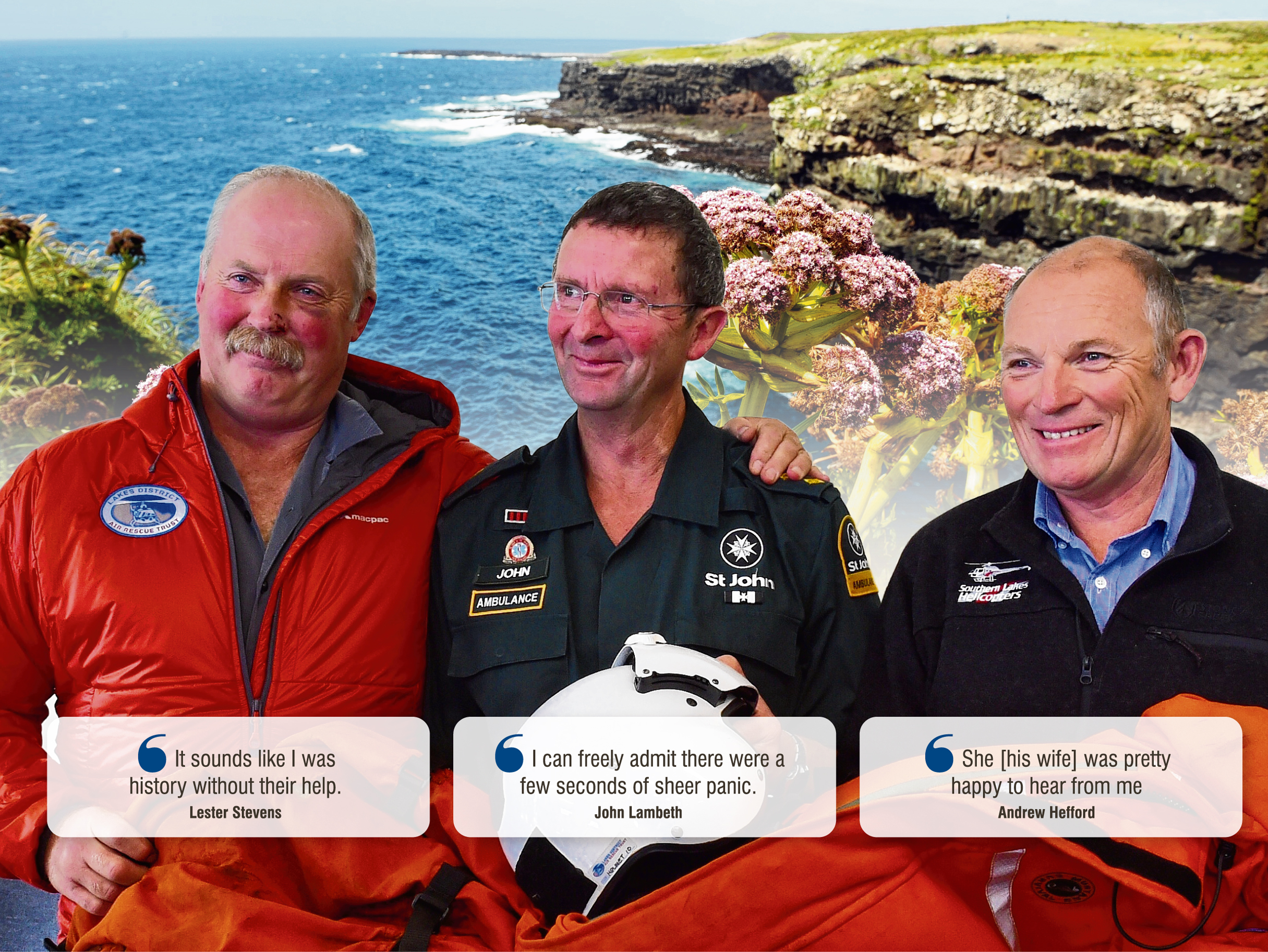
But Mr Lambeth says even he initially panicked after finding himself choking on sea water, in a rapidly filling aircraft, on Monday night.
His first thought was "I'm going to drown".
"I can freely admit there was a few seconds of sheer panic."
Speaking at a media conference in Te Anau yesterday, the St John paramedic said he recovered his composure "as soon as I took a breath" and got himself out of the sinking helicopter.
It was the first time Mr Lambeth, Southern Lakes Helicopters pilot Andrew Hefford and volunteer crew man Lester Stevens had been interviewed together since their rescue from a beach on the subantarctic island only 15 hours after the crash.
Journalists were asked not to question the men about the crash's possible cause; it is now under investigation by the Transport Accident Investigation Commission.
Mr Lambeth, a paramedic for 22 years, said their cold water immersion suits were "the difference between life and death" as they swam towards a silhouetted cliff face a few hundred metres away.
But once ashore, they realised none of them had life-threatening injuries.
"We all know that helicopters and survival rates are not very good at all, but we were alive and we were determined to survive."
Mr Stevens said he could remember nothing of the crash, but regained consciousness to find himself floating on his back in the sea.
Mr Lambeth, who had pulled him out of the back of the aircraft, was telling him and Mr Hefford to "stay together and swim".
"I want to thank these two guys, who looked after me until I was able to look after myself a bit more.
"It sounds like I was history without their help."
Mr Hefford, who broke a vertebrae in his back during the helicopter's "pretty violent" impact with the sea, said he also panicked initially after "getting mouthfuls of water" but his Helicopter Underwater Escape Training kicked in and he got himself out of the aircraft.
Once ashore, Mr Lambeth - who had found a head torch inside his suit - led them along the bottom of the cliff face in what seemed like a "route march" to find a way up to higher ground.
The trio spoke matter-of-factly about their experience, and only showed a hint of emotion while talking about the impact of their disappearance on their families, the moment of their rescue and their first phone calls to their wives.
Mr Stevens said when he rang his wife by satellite phone, "she was extremely pleased to talk to me because I know she feared the worst".
"We're big tough men but I was a bit choked up."
Mr Lambeth said they were well aware of the anguish their disappearance would be causing their families and colleagues.
"We certainly talked about the hell on earth that was being created by people wondering `what the hell is going on?'.
"We held a great belief our families would have high hopes for us.
"In my mind, they're the ones who've done the emotional hard work," Mr lambeth said.
When he spoke to his wife by phone, "I got the inevitable `you sod for doing this to us'."
Mr Hefford said he often thought about what his family would be going through, particularly his 10-year-old daughter.
His phone call to his wife was "pretty emotional".
He told her "I'm here, we're OK."
"She was pretty happy to hear from me".
The men revealed new details about their ordeal: how they flashed their only torch at a searching aircraft and passing fishing vessel, how Mr Lambeth found a hollowed-out log over which they built a crude shelter, and their unsuccessful attempt on Tuesday to light a fire with the lens cap from night vision goggles.
Mr Hefford said the flying conditions on the night of the crash, including visibility, were "good".
He admitted neither he nor Mr Stevens had personal locator beacons (PLB) attached to their suits, although he "usually" carried one in a dry bag.
Mr Stevens said he did not have his PLB and usual gear on the flight because he had agreed to take the place of a colleague on the rescue flight at short notice, and was picked up by the helicopter from the side of a country road while returning by car from a holiday.












